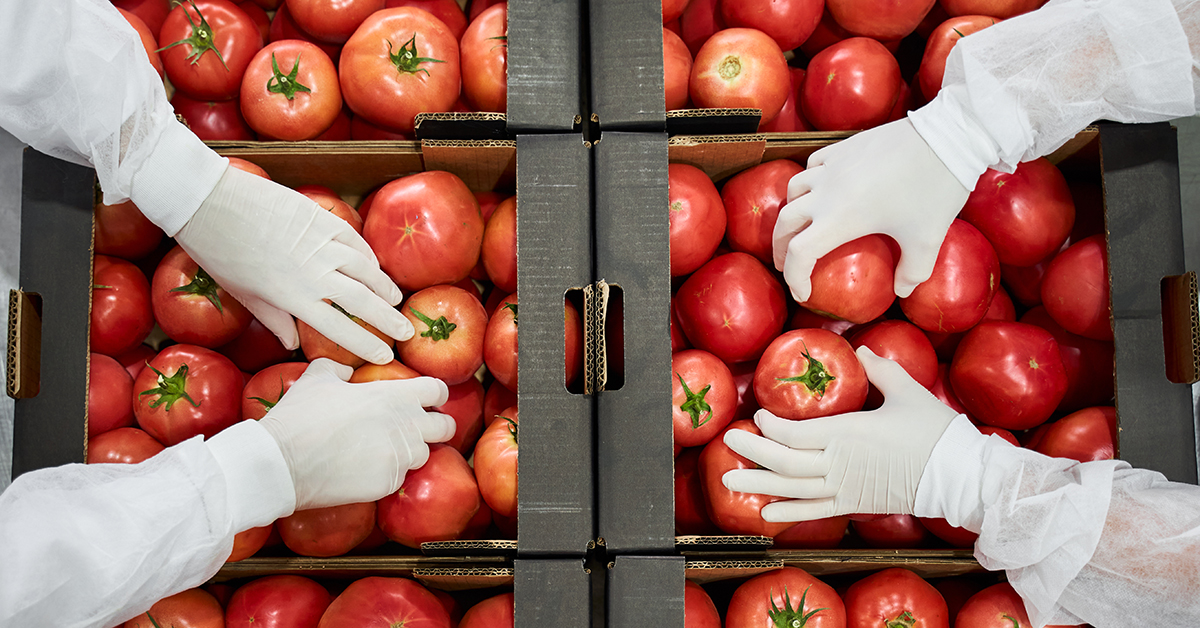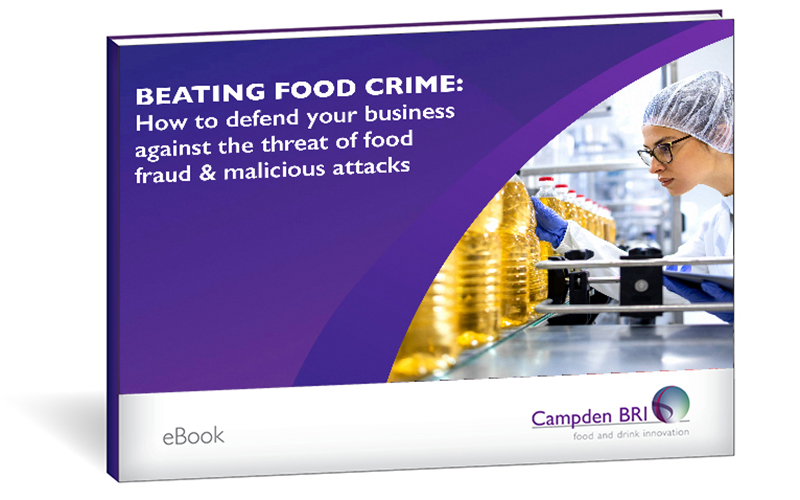
Control measures for tackling food fraud
11 June 2024 | Richard Leathers, Global Quality Lead
Despite our increased awareness of and focus on food fraud, it remains a significant threat to food and drink business operators – with fraudsters continuing to come up with new ways to both commit food fraud and evade detection.
As well as the existence of those seeking out food fraud to increase profits, multiple global and local issues (such as extreme weather events and geopolitical factors) can create significant cost and availability challenges, which can be triggers of food fraud and other types of food crime.
Download our FREE Beating Food Crime eBook today!
Win the fight against food crime – successfully defend your business against food fraud and malicious attacks.

As well as complying to the latest BRCGS Global Standard for Food Safety clauses on food fraud and food defence, and making use of guidance documents such as PAS 96, there are strategies that you can employ to protect your business from the detrimental impacts of potential food fraud.
Control measures against food fraud
Some of the strategies that you can put in place to safeguard your products include:
- Know the detail of your specific supply chains and building strong relationships with suppliers – ensure there are no surprises and that communication is well facilitated.
- Carry out threat and vulnerability assessments (TACCP/VACCP) – and have a thorough mitigation plan with multiple layers of controls.
- Analyse risk and make risk-based decisions – updating raw material risk assessments and TACCP/VACCP plans whenever something changes (new/changed material, new supplier, new risk, or a known incident).
- Conduct horizon scanning and use the outputs for risk assessments, TACCP/VACCP assessments – in order to take meaningful action.
- Adapt your monitoring plans – based on emerging risks and changes to the pressures affecting your supply chains.
- When sampling/testing your raw materials, ensure you understand what you are testing for and why, the limitations of your test methods, how to interpret their results, and how to act upon this information.
- Have robust supply chain management, traceability and crisis management systems in place.
Lessons from past incidents
Alongside focusing on these key areas, it is also important to learn lessons from past food fraud incidents that have taken place across the industry.
Some example lessons include:
- Raw material risk assessments must include knowledge of the cost/value-determining attribute of key materials (& how fraudsters could may try to use or manipulate this).
- Factor in material availability, environmental/seasonal impacts and regional influences (as well as other economic, geopolitical, and regulatory sources) when conducting horizon scanning and risk assessments.
- Consider the consequence of legitimate supply chain challenges and changes, and how these might be abused.
- Don’t be complacent, even if control measures appear robust.
- Do not underestimate the sophistication and level of planning that some fraudsters will go to.
- For materials with a high likelihood of food fraud, a full suite of controls is often necessary
- The wide-reaching effects of food fraud mean that robust traceability systems are key.
How we can help
We provide hands on support for businesses who want to better prepare for and address the threat of food fraud.
We can help you to implement, validate and verify effective food safety management systems to protect your business. We help businesses to identify emerging risks and trends through horizon scanning, and provide support with devising and adapting your management systems and monitoring plans based on the changing risk landscape.
Alongside this practical support, we provide a wide range of relevant training and can also analyse your products and materials to test for potential adulteration and other food fraud.

About Richard Leathers
Richard Leathers joined Campden BRI in September 2011, and has worked in the food industry for 4 decades.
Richard started working with Dairy Crest and subsequently worked for both Heinz, Unilever, Best Foods and Kanes Foods. Working in the areas of HACCP and Quality Management Systems, Richard also has experience within the fresh produce sector, as well as analysis systems in the milling / baking areas, and is a BRCGS qualified lead auditor.
Richard has contributed to several publications and guidelines, including those for TACCP, VACCP and HACCP / Risk Evaluation and is also trained at advanced level by EHEDG (European Hygienic Engineering Design Group).
Download our FREE ‘Beating Food Crime’ eBook today!
Win the fight against food crime – successfully defend your business against food fraud and malicious attacks.
How can we help?
If you’d like to find out more about how we can support your food safety and quality management systems, visit our service pages.






